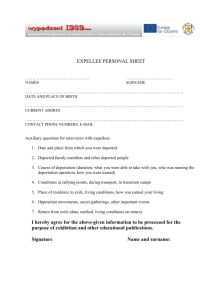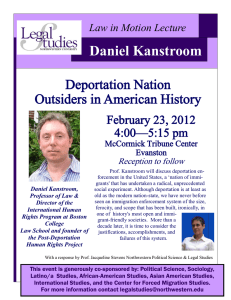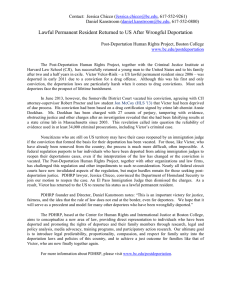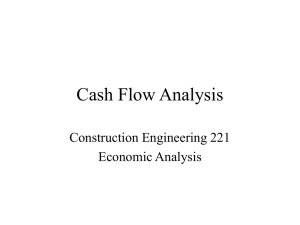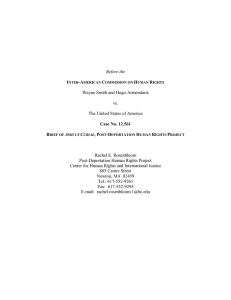Draft Convention on the Rights of Forcibly Expelled Persons
advertisement
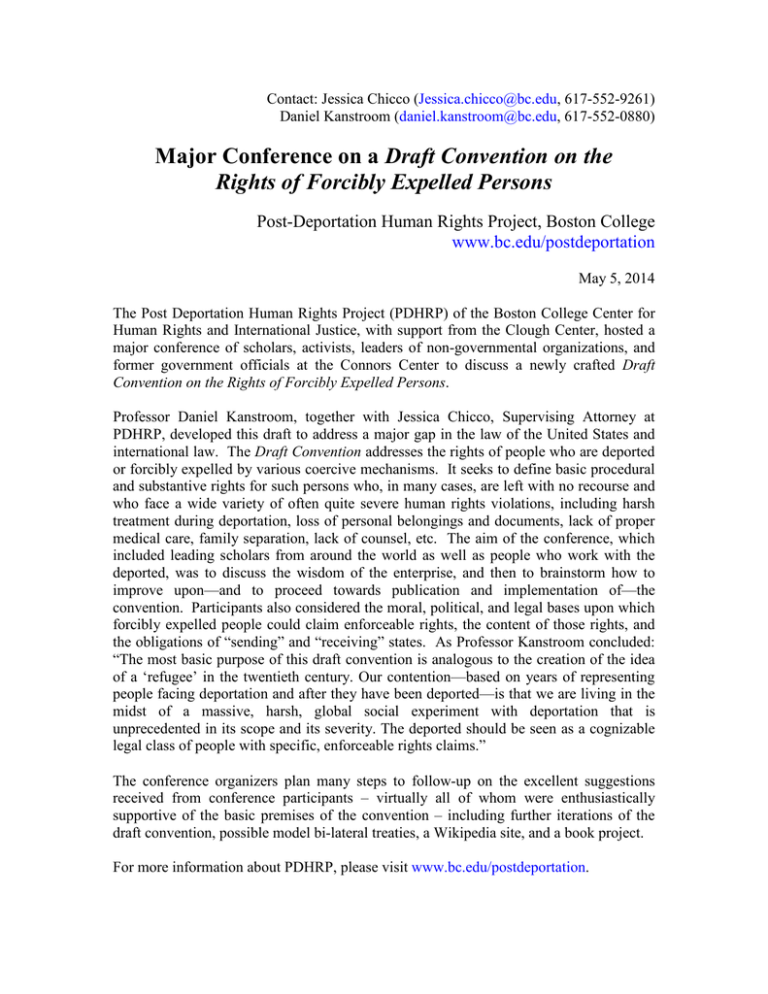
Contact: Jessica Chicco (Jessica.chicco@bc.edu, 617-552-9261) Daniel Kanstroom (daniel.kanstroom@bc.edu, 617-552-0880) Major Conference on a Draft Convention on the Rights of Forcibly Expelled Persons Post-Deportation Human Rights Project, Boston College www.bc.edu/postdeportation May 5, 2014 The Post Deportation Human Rights Project (PDHRP) of the Boston College Center for Human Rights and International Justice, with support from the Clough Center, hosted a major conference of scholars, activists, leaders of non-governmental organizations, and former government officials at the Connors Center to discuss a newly crafted Draft Convention on the Rights of Forcibly Expelled Persons. Professor Daniel Kanstroom, together with Jessica Chicco, Supervising Attorney at PDHRP, developed this draft to address a major gap in the law of the United States and international law. The Draft Convention addresses the rights of people who are deported or forcibly expelled by various coercive mechanisms. It seeks to define basic procedural and substantive rights for such persons who, in many cases, are left with no recourse and who face a wide variety of often quite severe human rights violations, including harsh treatment during deportation, loss of personal belongings and documents, lack of proper medical care, family separation, lack of counsel, etc. The aim of the conference, which included leading scholars from around the world as well as people who work with the deported, was to discuss the wisdom of the enterprise, and then to brainstorm how to improve upon—and to proceed towards publication and implementation of—the convention. Participants also considered the moral, political, and legal bases upon which forcibly expelled people could claim enforceable rights, the content of those rights, and the obligations of “sending” and “receiving” states. As Professor Kanstroom concluded: “The most basic purpose of this draft convention is analogous to the creation of the idea of a ‘refugee’ in the twentieth century. Our contention—based on years of representing people facing deportation and after they have been deported—is that we are living in the midst of a massive, harsh, global social experiment with deportation that is unprecedented in its scope and its severity. The deported should be seen as a cognizable legal class of people with specific, enforceable rights claims.” The conference organizers plan many steps to follow-up on the excellent suggestions received from conference participants – virtually all of whom were enthusiastically supportive of the basic premises of the convention – including further iterations of the draft convention, possible model bi-lateral treaties, a Wikipedia site, and a book project. For more information about PDHRP, please visit www.bc.edu/postdeportation.
